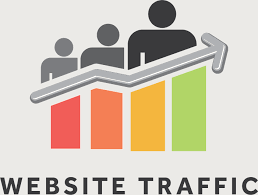Since the year 2019 began, the social media Facebook behemoth has learned, it will likely be hit with the record-breaking FTC fines, for the privacy violations, and become also embroiled in U.S. antitrust investigations, and the social media firm also suffered from two legal setbacks, in the lawsuits over Cambridge Analytica scandal.
The social media company announced in June, the release of “Libra,” its very own form of cryptocurrency that also sparked a wide criticism and speculation around the world.
You may have missed that Facebook Inc has also started the using of artificial intelligence to map the most of the population of African continent amidst all this hubbub, as the Facebook researchers combined the population data, the computer vision techniques, and high-resolution satellite imagery to search for built up structures across continent. Facebook researchers then created the population density maps based on number of buildings they observed.
For 22 countries, it has already released similar population maps by Facebook’s Connectivity Lab, of areas including South Africa, Malawi, Ghana, Sri Lanka and Haiti but this is its first continent-wide effort. Ultimately it plans to map the population density around the world. Facebook Inc is also positioning its map making as a humanitarian effort, that emphasizing how the data that is freely available to everyone, will enable the aid agencies to determine how the populations are distributed even in the remote areas, so that the health care workers can do better reach the households and the relief workers can better distribute the required aid.
That sounds similar to how Facebook is pitching its voice for the Libra cryptocurrency, as it claims to help the people, especially the poor people to access the financial services. Both the Facebook’s altruistic-sounding maps and the ambitious plan of Libra invite same key question: What’s in it for Facebook Inc?
In February 2016, when Facebook first announced its mapping program in a blog post, it didn’t use word of humanitarian at all but instead, it details how the social media company was making better maps to connect the unconnected and the underserved in world, and how accurate knowledge about population distribution was significant at the core of its efforts, in order to get more people onto Internet. At that time it’s map-making project was presented as a component of Facebook’s Internet.org project, that is a 2013 plan, to get people around the world online, by partnering with the telecom operators initially to offer the internet services to people in the developing markets via a Facebook controlled mobile application.
To extend the internet connectivity to everyone, Zuckerberg pitched it as a humanitarian effort, but it was met with considerable skepticism, from get-go. The researchers from notable media organization, and the Global Voices also criticized that “Free Basics” by the company from multiple angles, by observing that the service featured little content, that is produced in the country, pushed the social media users to sign up for the Facebook, and constantly collected the metadata about everyone who have used it, including those without the Facebook accounts. The in February 2016, finally the mapping program was announced and India’s telecom authorities, in the name of net neutrality, had actually blocked the Facebook’s Free Basics app.
From all above details, the overall point is this that the data colonizing companies view the human beings and the societies as a raw material the living mines, or the oil reserves of sorts from which they can extract the valuable information, and it can be extracted and appropriated, in the same ways that are often disturbingly similar to how the history’s colonizers exploited and still they exploit people who originally owned the land. If we comparing today’s data colonialism to that of historical colonialism of past, then we can better contextualize and also resist, the digital power-grab that is all where happening around the world today.
Researchers Nick Couldry and Ulises A. Mejias, in a recent paper, describe how technology companies engage in “data relations,” which turn our daily lives into a highly profitable “data stream”: this process enacts “a new form of data colonialism, normalizing the exploitation of human beings through data, just as historic colonialism appropriated territory and resources and ruled subjects for profit.” Ultimately, they believe, data colonialism “paves the way for a new stage of capitalism whose outlines we only glimpse: the “capitalization of life without limit.”



